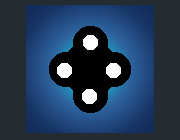Workshop on High Concentration FDS-AUC 1)
1) https://doi.org/10.1007/s00249-020-01474-5
Presenters:
Jack Correia, University of Mississippi Medical Center, Jackson, MS, USA, and
Walter Stafford, Harvard Medical School, Cambridge, MA, USA.
Description
Since the early days of protein characterization, the development of AUC
analysis for high concentration SV data has been a critical focus. The
early Model E Schlieren optical system worked best from 5-20 mg/ml. With
the advent of therapeutic antibodies delivered at up to 150 mg/ml, high
concentration AUC techniques continue to be proven irreplaceable. This
workshop will discuss two essential steps in FDS AUC data collection
and analysis:
- Experimental setup of FDS SV runs at high concentrations.
- Analysis of FDS SV data with nonideal, associating models in SEDANAL.
We typically perform experiments in tracer mode with 100 nM
Alexa-labeled mAbs in unlabeled mAb concentrations from 1 to 150
mg/ml. FDS optics do not need reference channels, so we run up to six
samples in a four hole rotor with 3 mm centerpieces. For this reason,
sample labeling and equilibration will be discussed. We process FDS
data for meniscus and base regions, and globally fit with models that
account for hydrodynamic k s and thermodynamic nonideality BM 1 ,
plus weak association. Therefore, basic SEDANAL procedures (data
preprocessor and ModelEditor) will be presented. Lastly, we perform
error analysis by bootstrap with replacement methods. Experiments can
also be performed in human serum, which necessitates knowing serum
protein concentrations and the use of matrix methods for k s and BM
1 cross term nonideality parameters. Data sets will be provided for
student testing. SEDANAL runs in Windows 10 or 11, and on a Mac, requires
Parallels, Boot Camp or VWware. Students should prepare for this workshop
by reading
Correia,
et al. Eur. Biophys. J 49, 687, 2020.
Please note:
The current version of SEDANAL along with the User Manual can be downloaded from
http://sedanal.org/latest/.
This workshop will be presented on Sunday from 14:30-16:30 (session 3).

